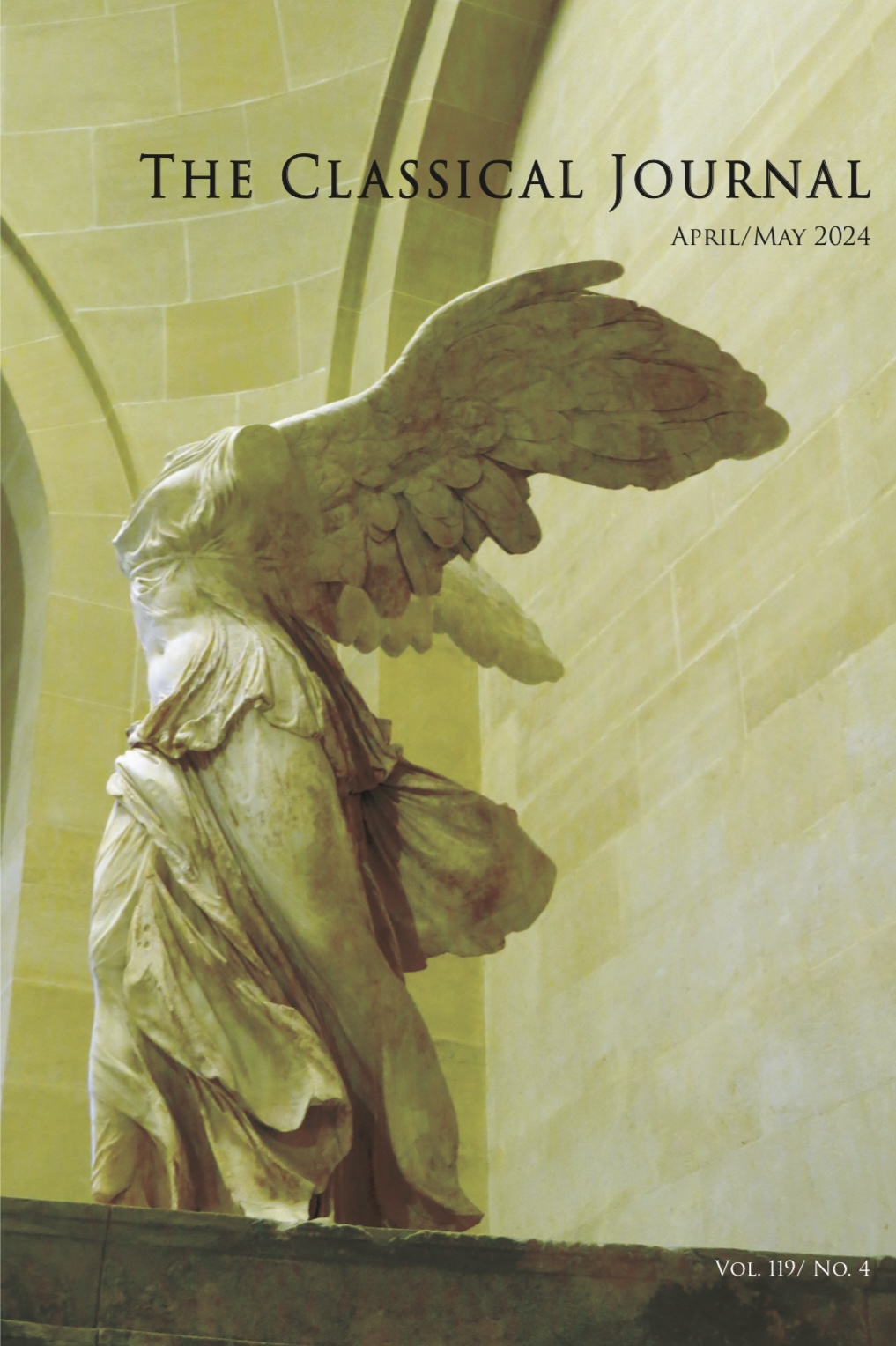The following articles are contained in CJ
111.2
Abstracts of Articles
CANNIBAL DEMETER (PIND. OL. 1.52) AND THE THESMOPHORIA PIGS
At the Thesmophoria women drew up from chasms the rotten remains of pigs, which, when mixed with seed, were supposed to ensure a good crop. Greeks said this honored the swineherd Eubuleus, swallowed up when Pluto abducted Persephone, but modern scholars seek a better explanation. I offer two: first the pigs symbolize Demeter’s genitals. Second, in the highlands of Papua New Guinea, when a man dies, his tribesmen invite women to eat the dead man’s flesh along with pork. Demeter herself once ate human flesh, which is metaphorically a kind of pork. I suggest, therefore, that the story about Pelops is a charter-myth for the Thesmophoria pigs.
DECIMATION IN THE ROMAN REPUBLIC
Decimatio, or executing a portion, usually a tenth, of a Roman legionary unit, is regarded as a quintessential example of old-fashioned military discipline. It is nonetheless poorly attested in the earlier Republic, though in the first century we find more instances. This paper examines its literary manifestations and scrutinizes its historicity. By considering soldiers’ access to provocatio, cultural and legal prescripts on subjecting citizens to corporal punishment, military demography, and civil war crises, it argues that decimatio went into disuse in the wake of legislation de provocatione by the 130s BCE, and was used again in the Late Republic.
HOW TO MAKE A ROMAN DEMOSTHENES: SELF-FASHIONING IN CICERO’S BRUTUS AND ORATOR
This article argues that Cicero’s use of Demosthenes in his Brutus and Orator should be read in light of Caesar’s dictatorship. An examination of Demosthenes’ Hellenistic reception reveals that his significance in the Greek world centered on his rhetorical prowess and his (failed) opposition, as the last orator of democratic Athens, to the tyranny of Philip. Cicero, who now saw himself as the last orator of republican Rome, wanted to be remembered in the same way. For this reason he drew deliberate parallels between his career and Demosthenes’ in these two works, laying the groundwork for the associations he drew on in the Philippics and establishing a comparison that persists to this day.
MONSTRUOSA SPECIES: SCYLLA, SPARTACUS, SEXTUS POMPEIUS AND CIVIL WAR IN SALLUST'S HISTORIES
Through the figure of Scylla, Sallust evokes Sextus Pompeius as part of his critique of contemporary politics. Although the Histories narrate the years following Sulla’s death, they are an allegorical critique of Sallust’s own world. Scylla appears in an excursus on Sicily in Sallust’s account of the Spartacus War. Although the Spartacus War taxed Rome for three years, the state downplayed the threat posed to the security of the republic. Likewise, the triumvirs downplayed Sextus’ threat by portraying him as a mere pirate. Sallust evokes Sextus in the context of the Spartacus War to suggest that, despite the triumvirs’ dissimulation, Sextus was a threat, and that the state was as unstable during the triumviral years as it was during those turbulent years after Sulla’s death.


